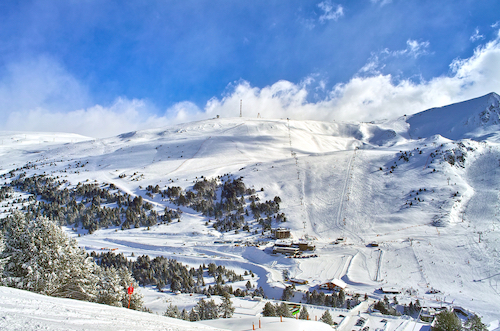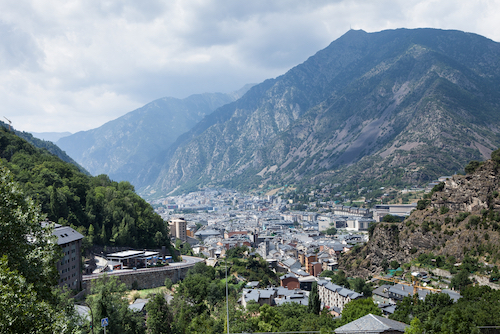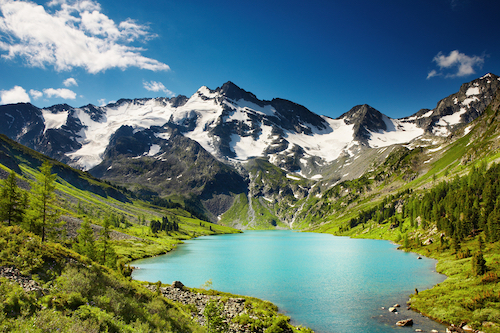The little state of Andorra is a tempting choice for anyone looking for a job in the Pyrenees. We will look at some of your choices for both seasonal and non-seasonal work: the main tourist activities in the country are skiing, hospitality and retail, but there are some opportunities for employment outside these sectors.Your choice of employment will to some extent depend on your nationality: although Andorra is bordered by EU nations, it is not itself a member of the EU, so you may find yourself having the status of a third party national and will need official permission to take up work and residency in the principality. In practice, most potential workers come to Andorra with their documentation and take up temporary accommodation while applying for work and residency.
You will need both a work permit and a residence permit to work in Andorra. Self employed work/residency permits are capped: around 900 were available to foreign workers in 2018. Also, local workers have priority: for most jobs, employers must advertise on Andorran jobs boards first.
You will need the following documentation for a work permit:
• a report certifying that you do not have a criminal record from your country of origin (this is known as an ‘apostilled police report’ – a DBS check from the UK should be sufficient but note that there is a 3 month time limit on this document)
• a copy of your passport
• photos
• your CV
• certificate of your marital status if you are married
• certificate of your housing status (a rental agreement or a statement signed by your accommodation provider)
Residency applications for Andorra can be complex, and you may wish to seek specialist advice from one of the many consultancies who can guide you through the various categories of residence.

If you are offered employment in Andorra, your employer should sponsor you for a work permit.
You will ideally need to speak Catalan, Spanish or French, or all three languages: the first two are more critical and the official language is Catalan (bureaucracy will need to be conducted in that language). However, being English-speaking is also an advantage, given the number of English-speaking visitors to Andorra.
Experience in the hospitality and retail sectors will also be an advantage if you are aiming at working in these areas. Bear in mind that this kind of employment is seasonal – temporary winter employment is the most common form – and you will need to apply for jobs before the ski season starts: either September or even earlier. Most hiring takes place round about October, and you are likely to be employed either in Vallnord or Grandvalira, the main ski resorts. You will not be allowed to work legally as an independent instructor but must be employed by a ski school.
You will find work as a TEFL teacher, but this is likely to be in the private sector and may take the form of individual tuition rather than teaching in private schools as these are limited in Andorra.

You are not legally permitted to work more than 12 hours per day or 40 hours per week, unless you are paid overtime. This constitutes 2 additional hours per day. Over a week, you will be legally paid 25% extra for your first 4 hours, 50% for the next 4, and 75% for any work undertaken over your 9th hour. You will also be paid 20% above the minimum wage for any nightshift work.
You are entitled to one day off per week and a 30 minute break over the course of each 6 hour shift. There are also 4 official Andorran holidays per year.
Minimum wage in the country is €1,050.40 per month, although you will have to pay a form of national insurance out of this wage (around 6.5%), plus any tax. This will cover you for public healthcare in the principality. Salaries are commensurate with neighboring Spain and France but the cost of living is lower, making Andorra an attractive proposition despite its rather convoluted employment regulations.
Your spouse will be allowed to enter the country as your dependent, but will need to make a separate application for a work permit. Check this out with Andorran immigration before you enter the principality.
Job Vacancies
You can apply for work in Andorra via a direct application and/or via one of the principality’s job boards: the principal one is Buscofeina.

Job fairs featuring Andorra are not common but there are agencies which cover ski/chalet work and employment in hospitality in the principality’s hotels in addition to the country’s job boards online.
Applying For A Job
A basic but detailed CV will usually suffice. Do your research and check whether the company to which you are applying has any specific requirements.
Discrimination against women is illegal, but non-governmental organisations have reported that institutionalized misogyny is still an issue in Andorra, so be aware of your rights if you are going into an interview in the country.
Qualifications And Training
Having a qualification as a ski instructor (equal to the British Association of Snowsport Instructors (BASI) Level 2 Instructor Qualification) will also be essential if you are planning to work directly with the ski industry. Similarly, in other forms of sport such as snow-boarding and paragliding, you will need to have the relevant qualifications if you wish to work as an instructor.

If you are intending to teach English, a TEFL qualification will be needed: remember to take a copy of your TEFL certificate along with you to interview. Experience in international teaching is also desirable.
Banking is also an option as Andorra has an active financial services industry: again, you will need the relevant qualifications and experience. Employment in this sector is competitive.
Would you like to share your experience of life abroad with other readers? Answer the questions here to be featured in an interview!

